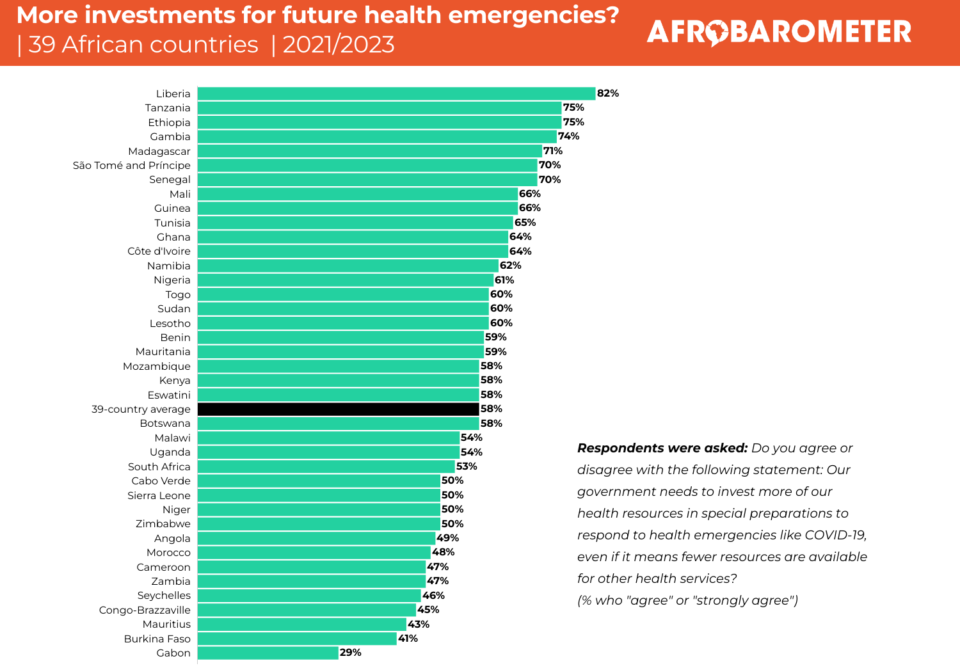Afrobarometer Surveys Show
Only about half of Africans think their governments are prepared for a potential future pandemic, and a majority say additional investments in such preparations are needed, the latest Afrobarometer Pan-Africa Profile shows.
The findings, based on 53,444 face-to-face interviews in 39 African countries, show that about one in seven households experienced a case of COVID-19, while more than a quarter suffered the loss of a primary source of income. Despite the severe economic effects of the pandemic, fewer than a quarter of households received pandemic-related assistance from their government. Most respondents say that the distribution of relief was unfair and that corruption claimed funds intended for the pandemic response.
Even so, a majority of Africans say their government managed the pandemic well.
The findings also show that in times of crisis, Africans are more likely to endorse the use of the police or military to enforce public health mandates than they are to accept postponement of elections and censorship of the media.
Afrobarometer survey
Afrobarometer is a pan-African, non-partisan survey research network that provides reliable data on African experiences and evaluations of democracy, governance, and quality of life. Nine survey rounds in up to 42 countries have been completed since 1999. Round 9 surveys (2021/2023) cover 39 countries.
Afrobarometer’s national partners conduct face-to-face interviews in the language of the respondent’s choice that yield country-level results with margins of error of +/-2 to +/-3 percentage points at a 95% confidence level.
Key findings
Effects of COVID-19
- One in seven respondents (14%) say that they or someone in their household became sick or tested positive with COVID-19 (Figure 1).
- About twice as many (29%) say that a household member lost a job, a business, or a primary source of income due to COVID-19 (Figure 2).
Government response and assistance
- Fewer than one in four respondents (23%) say their household received pandemic-related assistance from the government (Figure 3).
- And only 27% think that government assistance was distributed fairly. This perception was much higher among households with no experience of lived poverty than among those who experienced high levels of material deprivation (38% vs. 21%) (Figure 4).
- Most Africans say that “a lot” (46%), “some” (22%), or “a little” (12%) of the funds intended for the pandemic response were lost to corruption.
- But overall, two-thirds (66%) of Africans say their government managed the pandemic response “fairly well” or “very well.”
Future pandemics
- About half (51%) of Africans believe that their government is “somewhat” or “very” prepared for a future public health emergency (Figure 5).
- Almost six in 10 (58%) say their government should invest more in preparations for a future health emergency like COVID-19, even if it means fewer resources are available for other health services (Figure 6).
Limiting democracy
- Two-thirds (67%) of Africans endorse the use of the military or police to enforce public health mandates during a pandemic, but fewer than half think such an emergency justifies postponing elections (49%) or censoring the media (42%).

